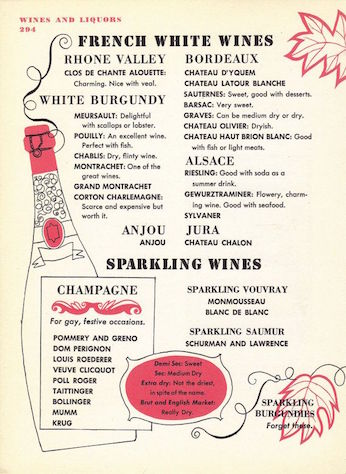The Four Pillars of Modern Alcohol Regulatory Reform
 The modern American alcohol regulatory system was dreamed up and implemented in the early 1930s by a group of men whose most recent experience with alcohol was thirteen years of national Prohibition, violent bootleggers and the pre-Prohibition moral squalor of the “Tavern”.
The modern American alcohol regulatory system was dreamed up and implemented in the early 1930s by a group of men whose most recent experience with alcohol was thirteen years of national Prohibition, violent bootleggers and the pre-Prohibition moral squalor of the “Tavern”.
Eighty-five years later the system that was created when school segregation was the law of the land, when child labor was largely unregulated and when there was no constitutional right to a minimum wage. remains mainly unchanged. The pillars of justification upon which the current alcohol regulatory system sit are clearly in need of review, dismantling and replacement with new foundational ideas and philosophies that account for nearly a century of change in the alcohol marketplace, the economy, technology and consumer expectations.
When fearful men wary of alcoholic drinks in excess of 3% went about searching for a new alcohol
regulatory formula at the beginning of the 1930s, their primary goal was to stamp out the criminal element that arose during Prohibition, preventing the return of the pre-Prohibition Saloon culture that led to drunkenness, crime and family turmoil, and maintaining a nation steeped in temperance, not excess. These concerns led to the three pillars of alcohol regulation:
the return of the pre-Prohibition Saloon culture that led to drunkenness, crime and family turmoil, and maintaining a nation steeped in temperance, not excess. These concerns led to the three pillars of alcohol regulation:
1. Promoting temperance
2. Creating orderly markets free of corruption
3. Efficient tax collection for the purpose of funding and Temperance promotion.
Today, well into the 21st century, there are no bootleggers, there is no personal and familial turmoil derived from the “Saloon Culture” and the people of the United States are well educated on the dangers of over-consumption and alcohol addiction. Put plainly, the conditions and concerns that led to the creation of today’s alcohol regulatory system are no longer extant.
What’s necessary is wholesale reform of the American alcohol regulatory system beginning with a new set of intellectual and philosophical pillars upon which a new system of regulation may confidently rest and function for the benefit of the people.
I believe that system must rest on ideas that will be 1) embraced by consumers and the alcohol trade, 2) reflect the reality of the modern economy and its underpinning technology and 3) that recognizes the broad consensus that excessive alcohol consumption is harmful to our culture and society and public safety.
 Given these important prerequisites to a new system of alcohol regulation likely to be embraced by the public, it seems clear that the following principles ought to guide alcohol regulatory reform:
Given these important prerequisites to a new system of alcohol regulation likely to be embraced by the public, it seems clear that the following principles ought to guide alcohol regulatory reform:
1. PUBLIC SAFETY
Laws and regulations that promote public safety, deter overconsumption and embrace the belief that moderate and responsible consumption is the ultimate goal must be enforced.
2. CONSUMER ACCESS
Laws and regulations governing the distribution and sales of the myriad of alcohol products available in the national marketplace must stress consumer accessibility, not fencing off of products based on state borders.
3. PRODUCT COMPETITION
Creating conditions for fair and reliable product competition ought to guide the reform of the laws and regulations that govern market accessibility and product distribution.
4. TAX COLLECTION
Alcohol regulation must be used to promote the efficient collection of taxes legitimately and uniquely levied on alcohol.
What should be clear about this set of four new principles for guiding alcohol regulation is that that  they take into account the reality of modern American economic conditions and practices, yet are not a reaction to archaic conditions that no longer exist, let alone currently impress the minds of consumers, entrepreneurs or engaged American minds.
they take into account the reality of modern American economic conditions and practices, yet are not a reaction to archaic conditions that no longer exist, let alone currently impress the minds of consumers, entrepreneurs or engaged American minds.
Without being precise in predicting what would result from alcohol reform based on these principles, it is fair to say that the kind of system that would emerge based on these principles would be far better for consumers, society and entrepreneurs than what currently exists in the United States. Today’s collection of ancient alcohol regulations formed in the minds of largely fearful men that addressed conditions that are generally unknown today have, 80 years later, retarded the growth of the American alcohol beverage system, morphed into a system of market spoils and protectionist legal anachronisms, and frustrated an educated American consumers whose access to unique products is too often prevented for the sake of protecting rent-seeking public and private entities.
Something fundamentally new is needed.

The Regulatory reform is see is more regulation. The FSMA basically did not exempt wineries from FDA regulation enough as wineries are now subject to the Food processing based Good (read Government) Manufacturing Practices. Which kind of makes some of the other stuff moot. Ohio in 2009 put in licensing and regulation of wineries as Food Processors. Really is ridiculous seeing as there is no history of food safety issues and wine is a palatable disinfectant. I see things only getting worse from a regulatory view.